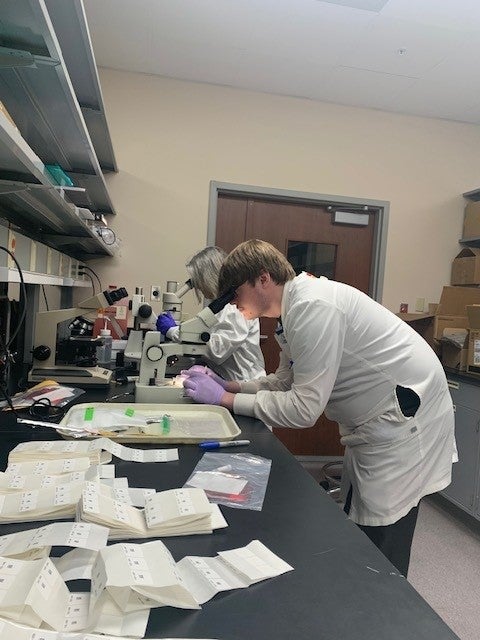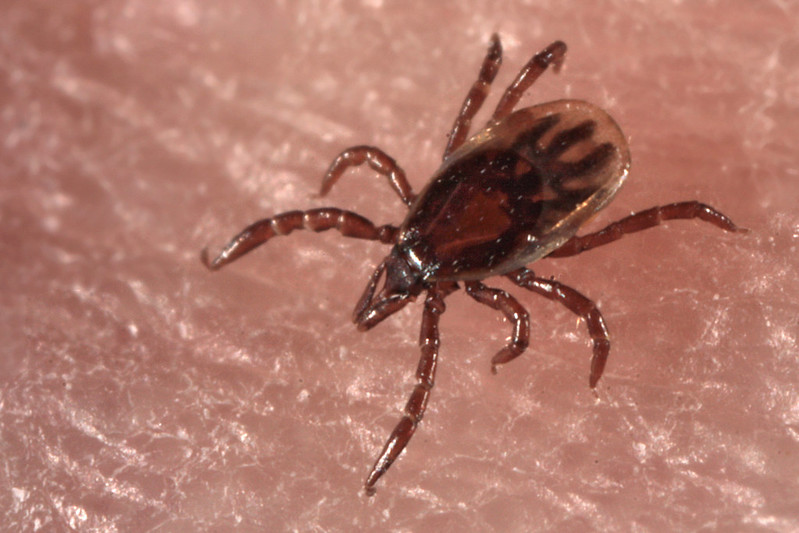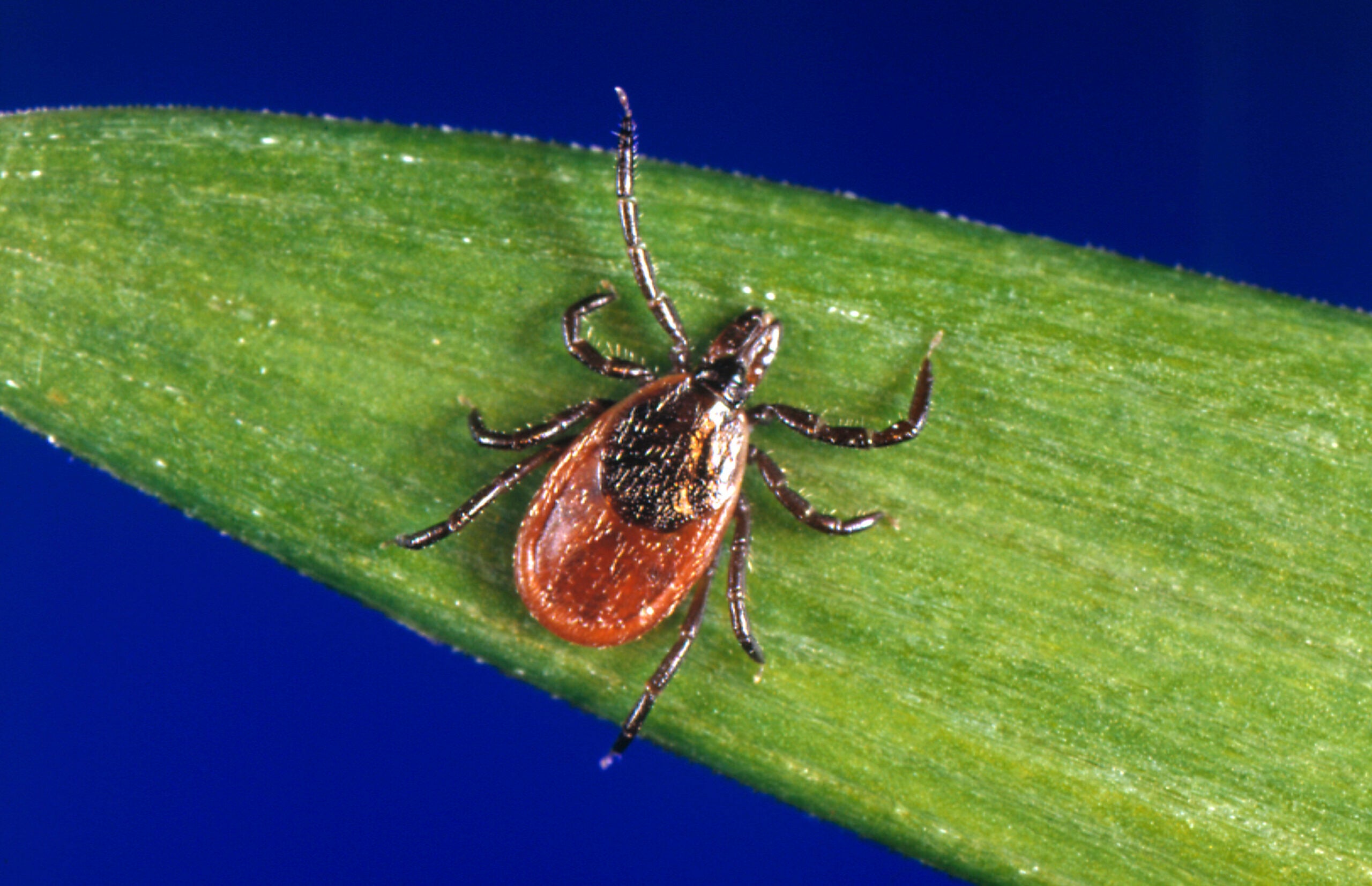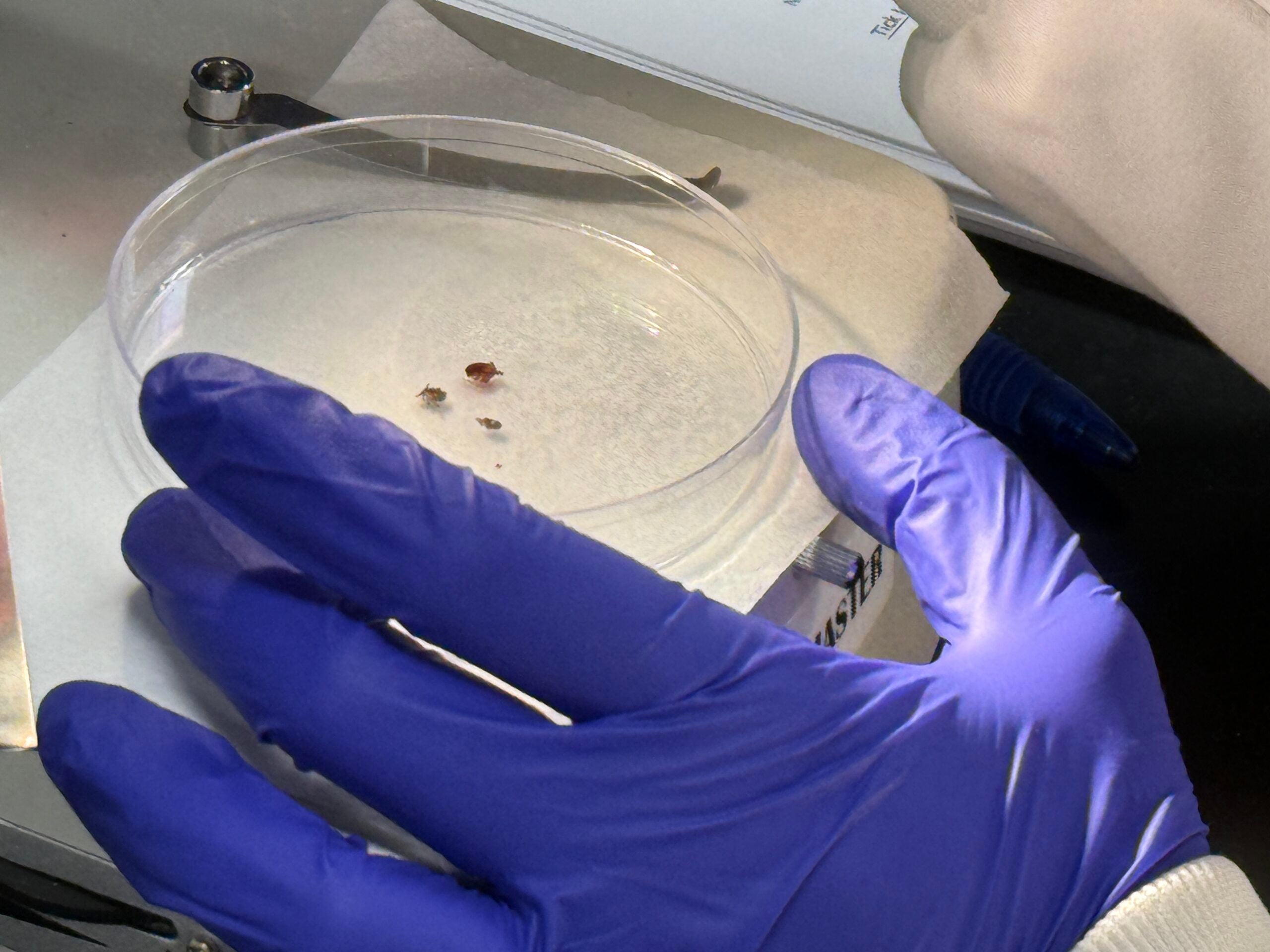After a hike through the woods or a walk through a field, it’s not unusual in Wisconsin to find a tick crawling on yourself or a furry friend.
Now, scientists at the Marshfield Clinic Research Institute hope residents will put those creepy-crawlies to good use through a new citizen science project. They’re asking Wisconsinites who find ticks to drop them into the mail instead of the trash.
The Tick Inventory via Citizen Science, or TICS, project started a little over three weeks ago, according to senior research scientist Jennifer Meece, and has already received and identified over 600 ticks.
News with a little more humanity
WPR’s “Wisconsin Today” newsletter keeps you connected to the state you love without feeling overwhelmed. No paywall. No agenda. No corporate filter.
Using free collection kits, people seal the ticks in a biohazard bag and fill out a short form about where they picked up the tick and what activity they were doing. Participants then mail the ticks to the research institute in Marshfield using a pre-paid envelope.
“Lots of people are asking for multiple kits,” said Meece, who also serves as the chief research officer for the Marshfield Clinic Research Institute. “They’re asking for kits for family and friends. Businesses are asking us for kits now. So really beyond my wildest imagination, people are just getting involved.”
She said they’ve sent kits to veterinary clinics, state parks and Wisconsin Department of Natural Resources field stations and even educational institutions that have students and faculty doing field work this summer.

The goal of the project is to first understand the distribution of tick species in Wisconsin and identify any invasive ticks that may be moving into the state. Meece said for decades, the research institute has been involved in understanding the impacts ticks have on humans by studying Lyme disease and other infections.
“Now we’re sort of digging down a little bit deeper into the environmental aspects where these ticks live,” she said.
Researchers are logging the ticks on an interactive map, where participants can look up the species of their contribution using an ID number. So far, the samples have been American dog ticks, also known as wood ticks, and deer or blacklegged ticks, which are the species that transmit Lyme disease.
The long-term goal of the project is to test the ticks for disease-causing pathogens, a system that Meece said is still in process. For now, researchers are keeping the samples in a freezer for future testing.
She said the information won’t be returned to participants, but will show researchers what questions to ask next.
“Where are hotspots for some of these diseases, and should we go into those environments and those communities and do increased education?” she said. “There’s just so many hypotheses that we can generate around understanding where these ticks are and the pathogens that they carry.”
Meece said the hope is that Wisconsinites feel connected to the research by being able to easily participate and then see the results of their contribution online. She said the project will also help build awareness about the prevalence of tick-borne diseases in Wisconsin, and hopefully prevent future infections.
“This is something that’s very relatable to almost every person that you know who lives in Wisconsin,” Meece said. “We maybe have come off of a time where there’s a lot of skepticism around science. So this is a very easy way for us to look to our communities, build that trust, have conversations about science that maybe wouldn’t have been facilitated otherwise.”
People can request a pre-paid collection kit by email at tics@marshfieldclinic.org or by calling 1-715-389-7796, ext. 16462.
Wisconsin Public Radio, © Copyright 2025, Board of Regents of the University of Wisconsin System and Wisconsin Educational Communications Board.






